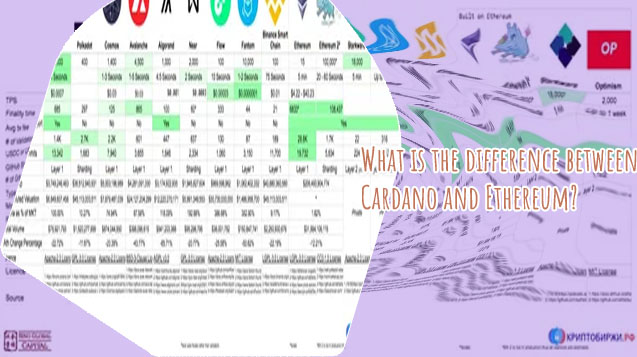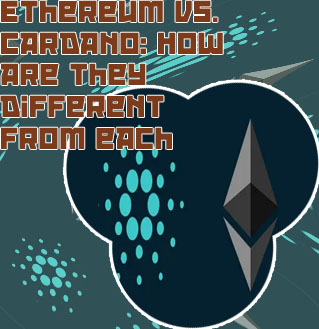
Cardano vs ethereum 20
When it comes to comparing Cardano and Ethereum, there are many factors to consider such as scalability, security, and governance. To help you make an informed decision, here are two articles that delve into the differences between these two popular blockchain platforms:
Cardano vs Ethereum: A Comprehensive Comparison

In the fast-paced world of cryptocurrency, two major players stand out: Cardano and Ethereum. Both platforms offer unique features and capabilities that have attracted a large following of users and developers.
Cardano, often referred to as the "Ethereum killer," is known for its focus on scalability, sustainability, and security. The platform uses a proof-of-stake consensus mechanism, which is more energy-efficient than Ethereum's proof-of-work model. Cardano also boasts a strong academic foundation, with its development being guided by peer-reviewed research.
On the other hand, Ethereum is the pioneer of smart contracts and decentralized applications (dApps). It has a larger user base and a more established ecosystem compared to Cardano. Ethereum's upcoming upgrade, Ethereum 2.0, promises to address its scalability issues and improve its transaction speed and cost.
When comparing Cardano and Ethereum, it's important to consider factors such as scalability, security, decentralization, and developer activity. While Cardano excels in scalability and security, Ethereum has the advantage of a larger user base and a more mature ecosystem.
In conclusion, both Cardano and Ethereum have their strengths and weaknesses, and the choice between the two ultimately depends on the specific needs and priorities of users and developers. As the cryptocurrency market
The Battle of the Blockchains: Cardano and Ethereum Go Head to Head
In the rapidly evolving world of cryptocurrencies, two major players have emerged as frontrunners in the battle for blockchain dominance: Cardano and Ethereum. Both platforms offer unique features and capabilities that set them apart from each other, making it difficult for investors and developers to choose between the two.
Cardano, often referred to as the "Ethereum killer," has gained significant traction in recent years due to its focus on scalability, security, and sustainability. With its innovative proof-of-stake consensus algorithm, Ouroboros, Cardano has been able to achieve impressive transaction speeds while maintaining a high level of security. Additionally, Cardano's commitment to peer-reviewed research and academic rigor has earned it a reputation as a trustworthy and reliable platform for building decentralized applications.
On the other hand, Ethereum has long been considered the gold standard in the world of smart contracts and decentralized finance. With a thriving ecosystem of developers and projects, Ethereum has established itself as a versatile platform for creating a wide range of decentralized applications. However, Ethereum has faced challenges with scalability and network congestion, leading some to question its ability to handle the growing demand for decentralized services.
Overall, the battle between Cardano and Ethereum is shaping up to be a fierce competition for dominance in the blockchain space. Both platforms offer